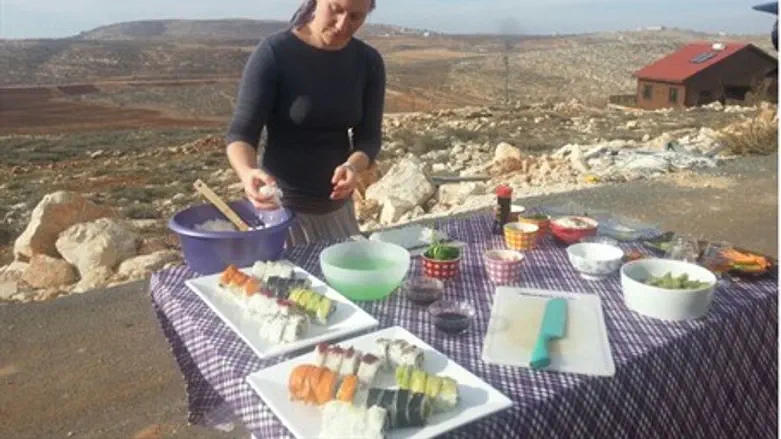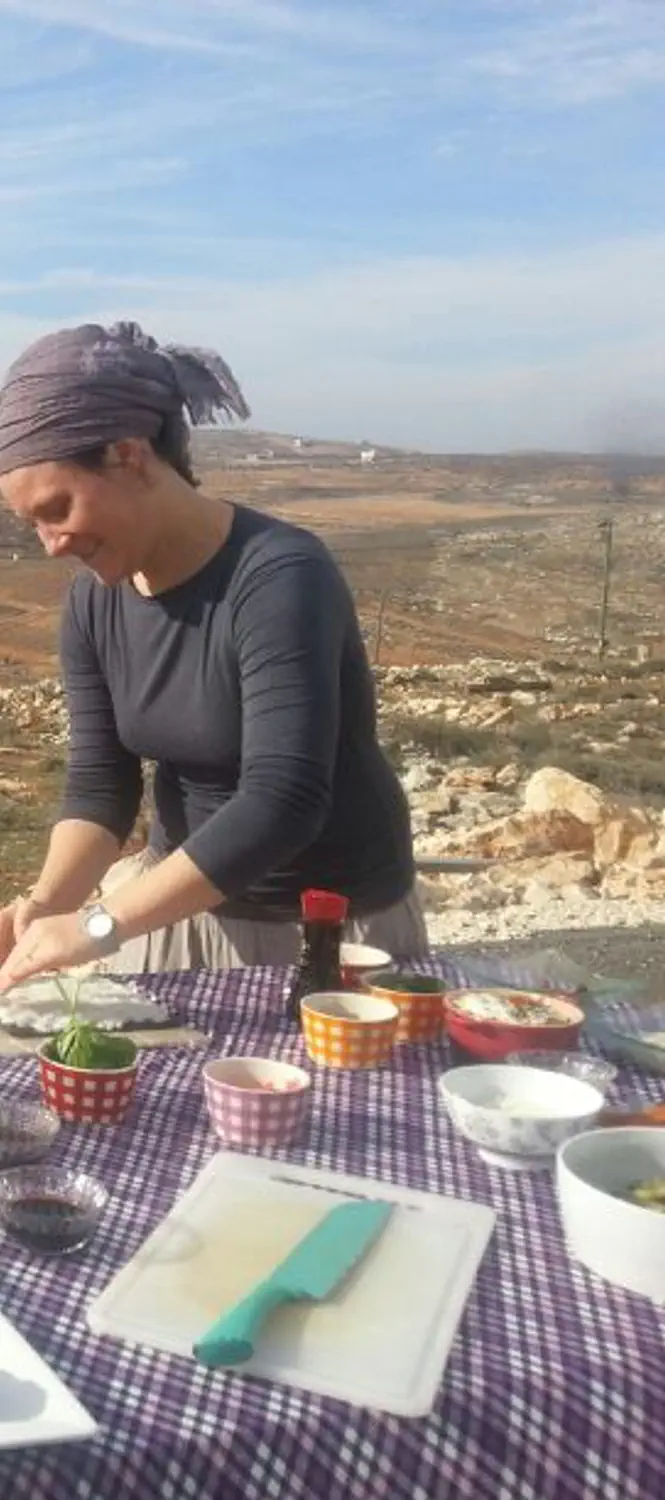
Maayan Shaar opened the sushi restaurant to introduce her neighbors to the dish, which is easily the most well-known of Japan's diverse cuisine. Sushi in Japan can be served as a common household food, or as a unique high-class treat in restaurants featuring freshly caught expensive fish.
After her sushi was served at a local inn, Shaar's cooking gained fame, and she now delivers to "even the most remote hilltops" in Samaria, reported Yediot Aharonoth on Wednesday.
As chance would have it, Yediot Aharonoth's Akiva Novick visited the restaurant on the very day of the near-lynching last week; with the attack occurring in the surrounding hills did not have an opportunity to taste the sushi.
The vineyards in Esh Kodesh were destroyed by the IDF without notice earlier that day using the draconian "disruptive use order," which lets an IDF legal adviser order the army to seize Jewish land, even without Arab claims to it.
Aron Katzov, an Esh Kodesh spokesman, revealed that aside from sushi, the town is growing in other ways, despite the destruction.
"I am relieved that Zo Artzenu (an organization supporting Jewish presence in the area) has donated 600 fruit trees in place of the (vineyard) grove, and everyone is welcome to come on Friday for the festive planting," said Katzov this week.
Previously Katzov detailed that several hours after the IDF destruction, Arabs from the nearby village of Kusra, who were apparently emboldened by the destruction, surrounded a group of Jews who were touring in the area, walking from Esh Kodesh to Givat Hayovel.
Despite Arab claims that the Jews were in Kusra to commit "price tag" vandalism, the spokesman's report confirms the testimony of one of the beaten Esh Kodesh residents, revealing the group was nowhere near the Arab village.
The fabricated libels against the Jews nevertheless led far-left Peace Now to call for the demolition of Esh Kodesh.
The attack was not the first on Esh Kodesh; in 2012 an Arab mob shouting "slaughter the Jews" attacked the town.
